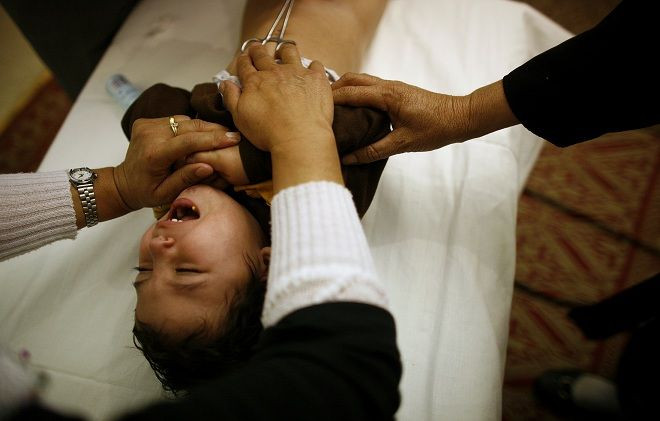German Court Bans Religious Circumcision, Causes Grievous Bodily Harm

Circumcising young boys on religious grounds causes bodily harm, a German court ruled on Tuesday saying that a parent's jurisdiction over the child does not extend to the practice of circumcision.
The district court of Cologne in western Germany ruled that the child's fundamental right to physical integrity outweighed the freedom of religion and the fundamental right of the parents, German news agency dapd reported Tuesday.
"The religious freedom of the parents and their right to educate their child would not be unacceptably compromised, if they were obliged to wait until the child could himself decide to be circumcised," the court added, AFP reported.
The case had involved a doctor in Cologne who was accused of circumcising a four-year-old Muslim boy that led to medical complications.
The doctor had reportedly circumcised the boy on his parent's wishes and a few days after the operation his parents took him to the hospital because he was bleeding heavily, and prosecutors charged the doctor with bodily harm.
The doctor had been acquitted by a lower court that ruled that he had acted within the law because the parents had given their consent, and while the regional court had upheld the original charge of grievous bodily harm, they ruled that the doctor was innocent because the legal situation around circumcision was too confusing.
However, the court ruled firmly against letting parents have the right to have the procedure performed on young children.
"The body of the child is irreparably and permanently changed by a circumcision," the court said. "This change contravenes the interests of the child to decide later on his religious beliefs."
The court's ban on the circumcision of young boys enraged Germany's Jewish community.
The leader of the Central Committee of Jews, Dieter Graumann said that the ruling was "an unprecedented and dramatic intervention in the right of religious communities to self-determination," according to AFP.
He added that the ban was an "outrageous and insensitive act. Circumcision of newborn boys is a fixed part of the Jewish religion and has been practiced worldwide for centuries."
"This religious right is respected in every country in the world," Graumann said.
Law experts said that the ruling was very important for doctors because for the first time in history they have legal certainty about circumcision.
"Unlike many politicians, the court has not allowed itself to be scared off by charges of anti-Semitism or religious intolerance," Holm Putzke, a criminal law expert at the University of Passau, told the Financial Times Deutschland.
Nearly one in three males under 15 is circumcised, according to estimates from the World Health Organization.
Circumcision is the surgical removal of some or the entire foreskin, the skin covering the tip of the penis. Circumcision is a commonly performed procedure for newborn boys in certain parts of the world, especially in the United States. Circumcision after the newborn period is a more complicated procedure.
The procedure can be seen as religious ritual or family tradition for some or it can also be a done for personal hygiene or preventive health care.
For others circumcision can seem unnecessary or disfiguring, and the procedure is generally irreversible.
Published by Medicaldaily.com



























